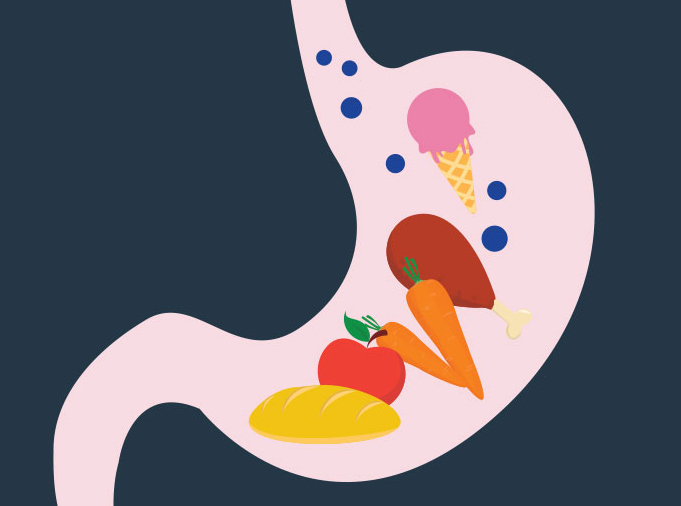How long does it take to digest food for a human + video
When it comes to digestion, a realm of misconceptions has emerged over the years. This article aims to unveil the truth behind these myths while shedding light on the intricate process of digestion and the factors influencing its duration. Let’s delve into the journey that food takes through our bodies and how various elements, including food type and individual differences, contribute to the digestion timeline.
How Long Does it Take to Digest Food :
Debunking Common Myths
Dispelling these long-standing myths is essential to fostering a better understanding of digestion:
- Myth: Gum Takes Years to Digest Contrary to popular belief, chewing gum doesn’t sit undigested in your stomach for years. Research indicates that the body processes gum just like any other food.
- Myth: Beans Are the Culprit of Excess Gas Beans might have a reputation for causing gas and bloating, but dairy products are the true culprits. They lead to more gas buildup compared to beans.
- Myth: Waiting 30 Minutes After Eating to Swim The claim that you must wait half an hour after eating before swimming lacks scientific basis. According to the Mayo Clinic, this notion has been debunked.
How Long Foods Stay In Your Stomach :
The Digestive Process Unveiled
Digestion serves as the body’s mechanism for breaking down food and liquids into absorbable components. The process unfolds in five stages:
- Chewing and Swallowing: Food is broken down and mixed with saliva’s enzymes.
- Stomach Processing: Swallowed food blends with gastric juices and enzymes, undergoing mechanical churning.
- Small Intestine Absorption: Further digestion occurs, and nutrients are absorbed in the small intestine.
- Nutrient Distribution: The circulatory system transports nutrients to various body parts for storage or utilization.
- Large Intestine Absorption and Waste Disposal: Remaining components reach the large intestine for additional absorption, with waste eventually being eliminated.

Digestion Timeline: From Swift to Variable
The journey of digestion unfolds across several time frames:
- Chewing and Swallowing: Seconds
- Stomach Processing: 2 to 4 hours
- Small Intestine Absorption: 4 to 6 hours
- Large Intestine Absorption and Waste Disposal: 12 to 24 hours
Overall, the complete digestion process takes 24 to 72 hours, guided by the intricate interplay of bodily processes.
Factors Influencing Digestion Duration
Multiple factors contribute to the variable duration of digestion:
- Metabolic Rate, Age, and Gender: Each person’s metabolism, age, and gender influence the speed of digestion.
- Stress Levels and Digestive Health: Stress can slow digestion due to the body’s fight-or-flight response redirecting resources.
- Enzyme Production and Gut Microbiome: Enzymes and gut bacteria play pivotal roles in determining digestion speed.
- Medications and Activity Level: Certain medications and activity levels impact digestion.
- Meal Size and Medical Conditions: Digestion may be affected by meal size and medical conditions like GERD, IBS, and Crohn’s disease.
Food Types and Digestion
Different foods undergo varied digestion timelines:
- Slow Digestion: Fatty meats, fried foods, and processed foods due to their high fat content.
- Protein and Fiber-rich Foods: These take longer to digest, promoting prolonged fullness.
- Quick Digestion: Water consumption speeds up digestion, while simple sugars and carbohydrates digest rapidly. Foods like cooked vegetables, eggs, applesauce, white rice, and salmon are easily digested.
Embrace Personalized Digestive Insights
Ultimately, digestion is a highly individualized process. It’s crucial to listen to your body and experiment with different approaches to find what suits you best. For personalized guidance, consulting a registered dietitian is recommended.
In unraveling the complexities of digestion, we gain a deeper appreciation for our bodies’ intricate mechanisms and the role that factors such as myths, individual differences, and food choices play in shaping our digestive experience.


